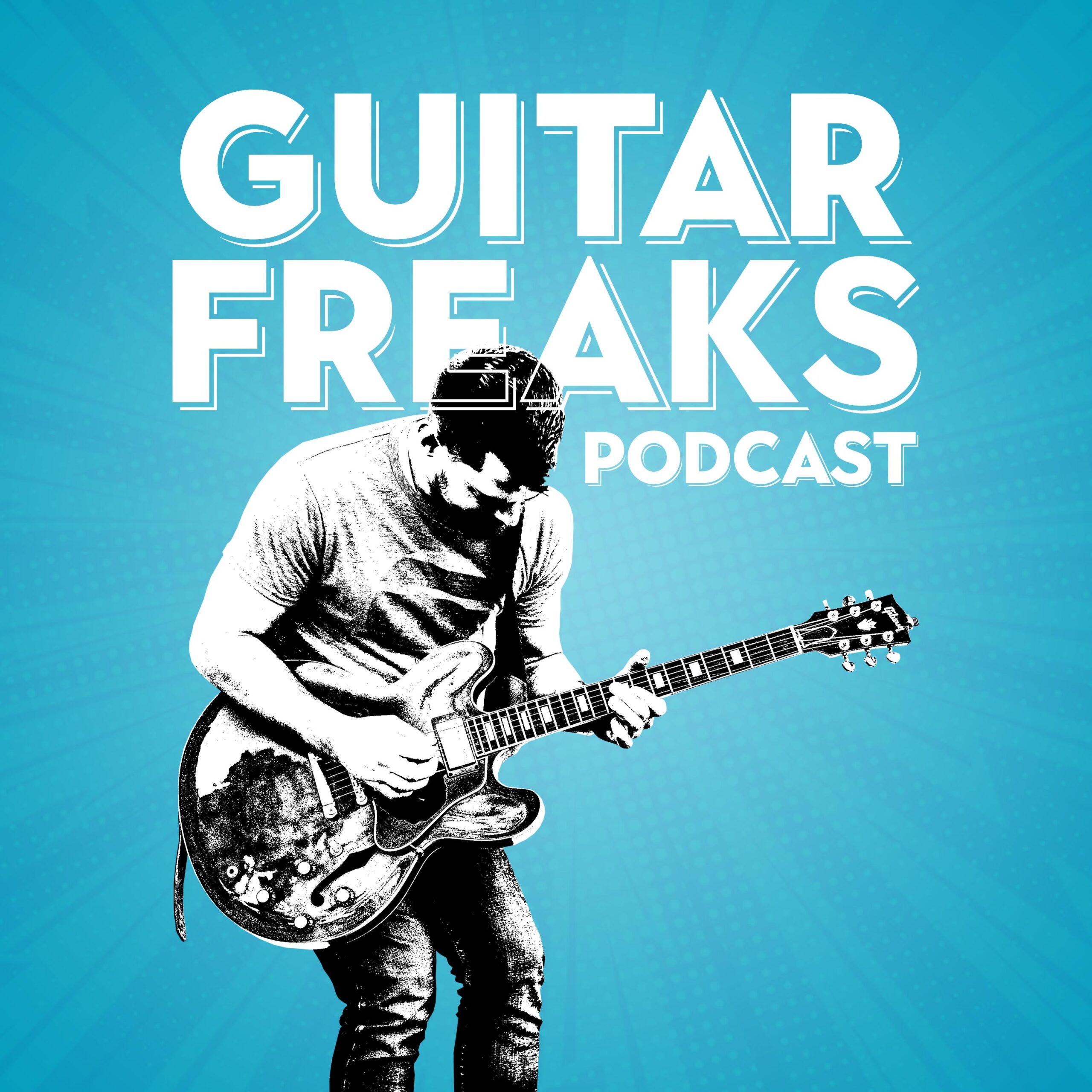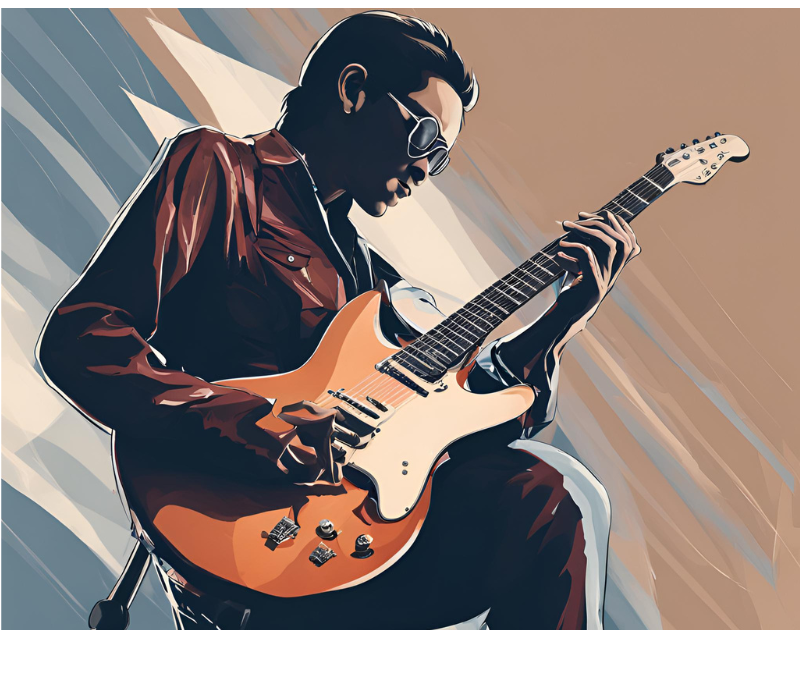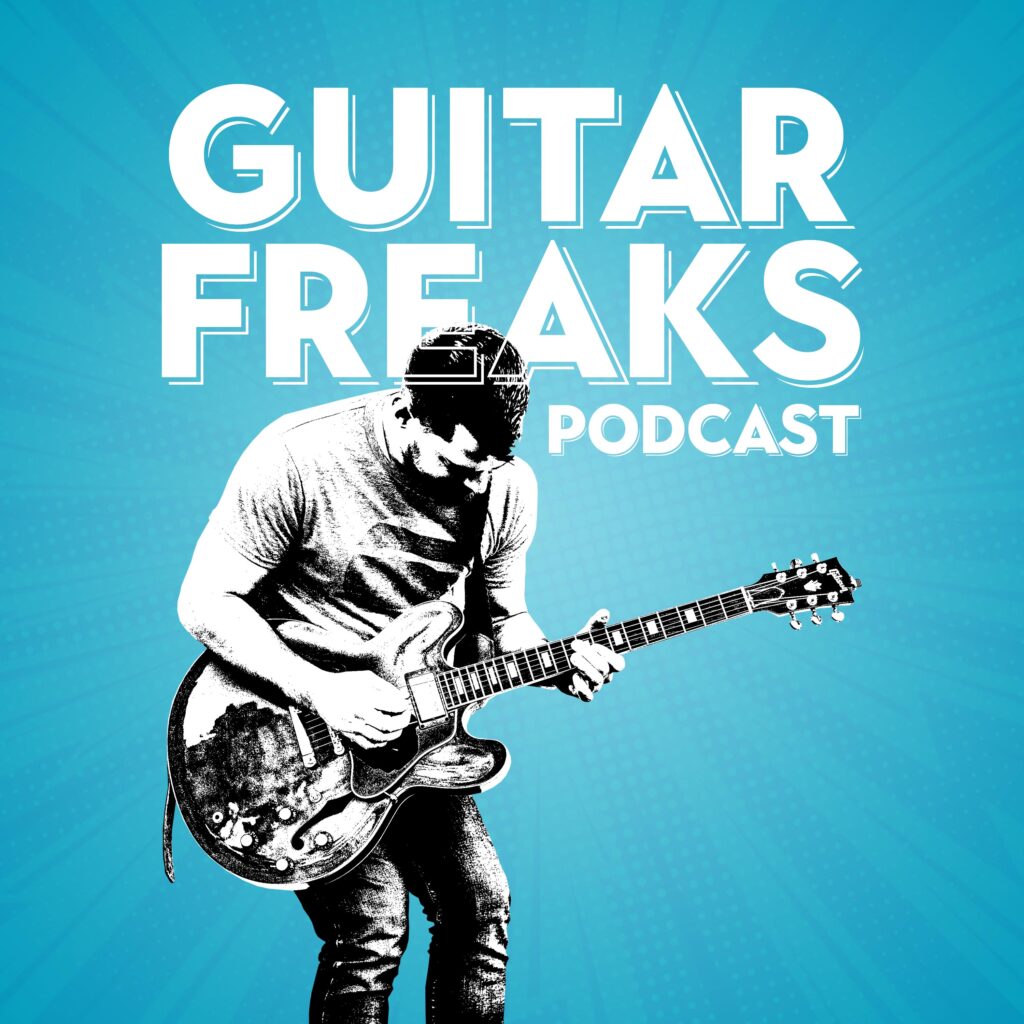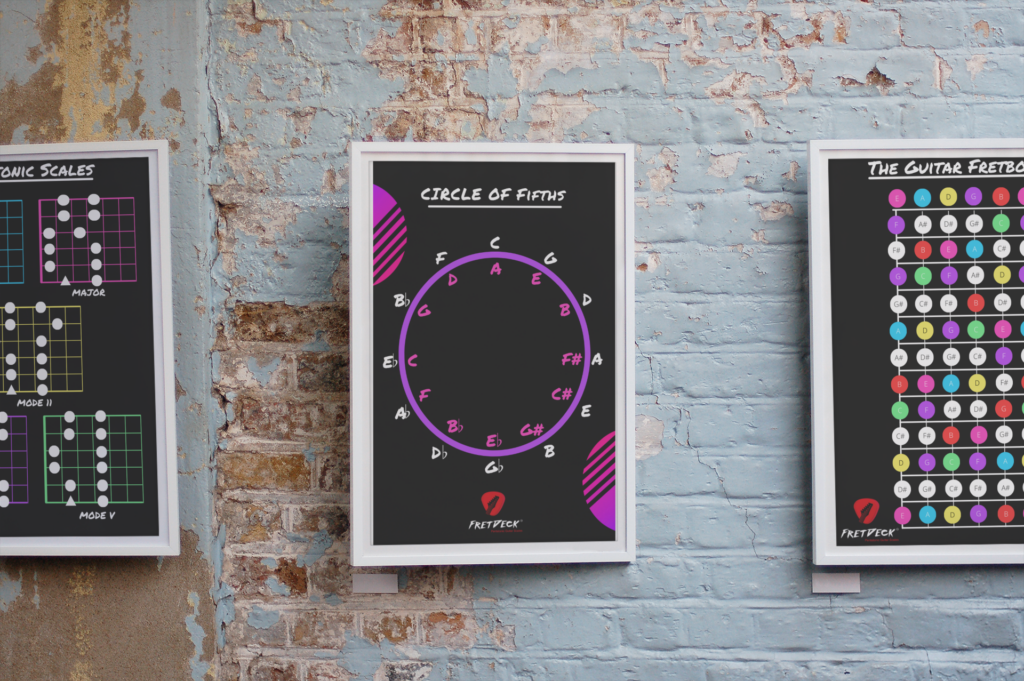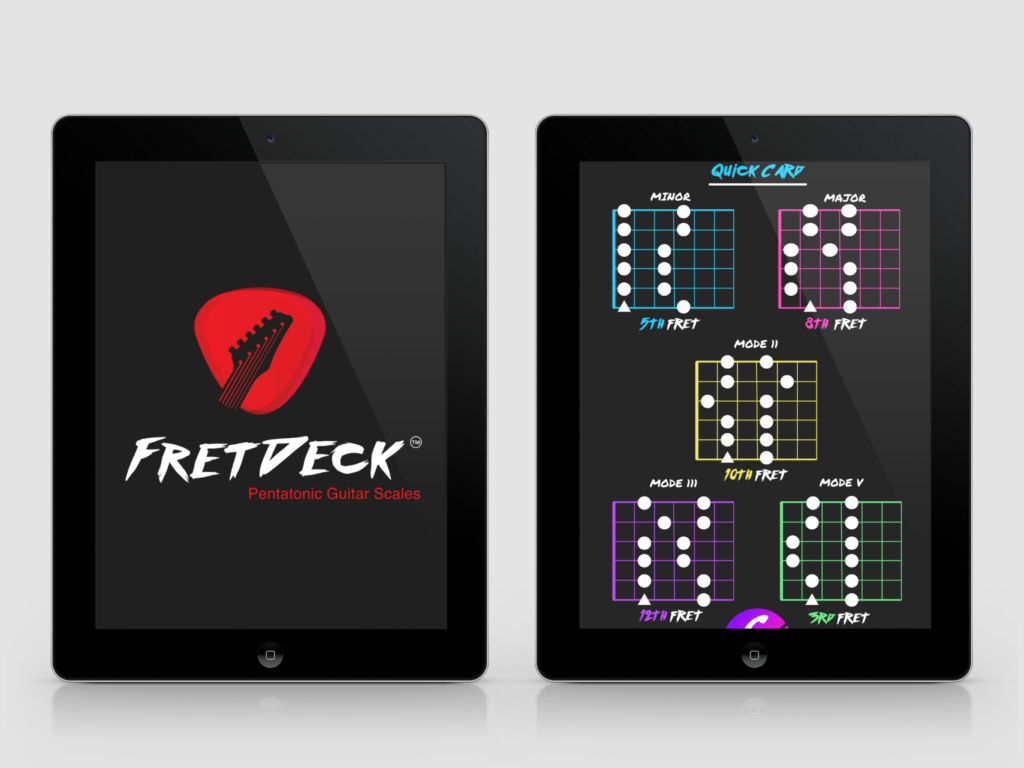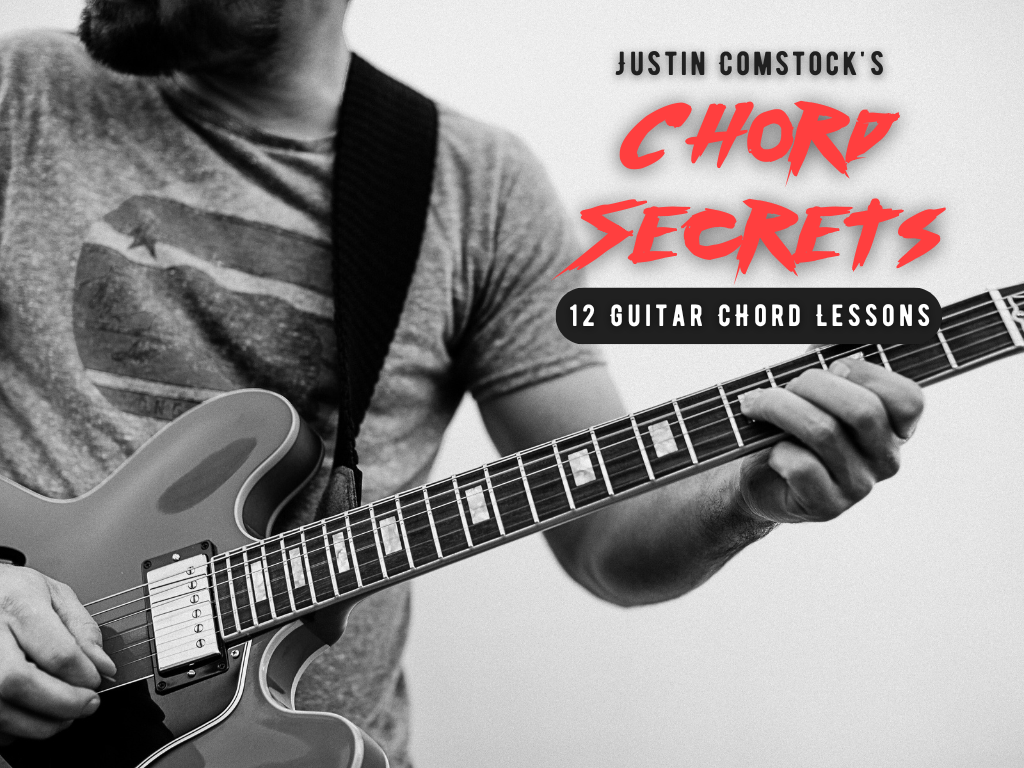Ever watch someone glide across the fretboard—landing every note, sliding into melodic phrases that sound effortless—and wonder, What do they know that I don’t?
Here’s the secret:
They aren’t relying on luck, or “talent,” or a thousand random licks.
They have structure—and that structure starts with the major scale.
If you’re tired of feeling stuck in patterns that don’t connect…if you want to finally understand why your favorite players sound so good…this is where it all begins.
In this guide, you’ll learn:
✅ What guitar major scales are—and how to use them right away
✅ How modes transform bland solos into unforgettable lines
✅ The story of Jeff, who rediscovered guitar at 40 using nothing but major scales
✅ A faster, simpler way to lock this into your muscle memory—without endless drills
Ready to finally make sense of your fretboard?
Stick around—I’ll show you how.

❌ Stop Guessing. Start Shredding.
If you’re still fumbling through scale patterns and box shapes… it’s costing you progress.
FretDeck™ is the no-fluff system that shows you exactly how to master the fretboard—fast. Early access.
⚡️ This isn’t for dabblers. It’s for players who want results.
👉 Click here to join the pre-launch now
Early access. Limited rewards. Don’t wait.
🎸 What Are Guitar Major Scales (And Why Should You Care)?
Let’s cut through the confusion:
A guitar major scale is a sequence of seven notes organized in a repeating pattern of whole and half steps:
Pattern:
Whole – Whole – Half – Whole – Whole – Whole – Half
Play that starting on C and you get:
C – D – E – F – G – A – B
Same formula. Any root note. Any key.
Why it matters:
✅ This scale is the foundation of melody.
✅ It’s the raw material for every chord you already know (and the ones you don’t).
✅ It unlocks modes—the “emotional colors” of music.
If you want to solo with confidence, understand harmony, and write lines that sound intentional, the major scale isn’t optional—it’s essential.
🧠 How Guitar Major Scales Make You a More Musical Player
Most guitarists learn a few shapes, run them up and down, and call it practice. But knowing why those shapes work is where everything changes.
Here’s what happens when you get the major scale under your fingers:
🎶 Melodic Freedom:
You stop noodling and start telling a story.
🎵 Chord Awareness:
You hear the notes that fit—and the ones that create tension (on purpose).
🎨 Modal Exploration:
You shift the mood of any solo by shifting your starting note.
Imagine this:
Instead of randomly picking notes, you’re making decisions.
You’re seeing the fretboard as one connected landscape.
You’re playing with intention—and it shows.
🌈 What Are Modes—and Why Should You Use Them?
Modes are simply the major scale viewed from a different starting point. They’re not advanced theory—they’re musical shortcuts to create different feelings.
| Mode | Feel | Quick Tip |
|---|---|---|
| Ionian | Happy, stable | Your standard major scale |
| Dorian | Minor, soulful | Use over minor grooves |
| Phrygian | Dark, exotic | Great for metal or flamenco |
| Lydian | Dreamy, floaty | Think Steve Vai or film soundtracks |
| Mixolydian | Bluesy, dominant | Perfect for rock and blues solos |
| Aeolian | Sad, introspective | Also called the natural minor |
| Locrian | Dissonant, unstable | Use with caution—advanced sound |
Try this right now:
Pick up your guitar, play a C major scale.
Now, instead of starting and ending on C, start and end on D.
Congratulations—you’re playing D Dorian.
This simple shift is why major scales and modes are the backbone of improvisation in rock, blues, jazz, and beyond.
🎧 Where Major Scales Show Up (Hint: Everywhere)
Think major scales are only for theory geeks? Think again.
✅ Rock & Pop:
The Beatles, Tom Petty, Nirvana—major scales are embedded in their melodies.
✅ Blues:
Mixolydian mode (rooted in the major scale) gives the blues its soulful, dominant tension.
✅ Jazz:
Lydian and Mixolydian are essential tools for modal jazz and fusion.
✅ Classical:
Nearly every piece is built on major scales and their derivatives.
Bottom line:
If you can hear it, you can trace it back to the major scale.
🎤 Jeff’s Story: Rediscovering Guitar at 40 with Major Scales
Jeff was in his forties—two kids, a day job, a Strat gathering dust in the closet.
Then he heard Van Halen’s Eruption on the radio—like he was hearing it for the first time.
“How does he make that sound out of these scales?” he thought.
Instead of going back to aimless scale drills, Jeff did something different:
✅ He focused on learning the major scale patterns all over the neck.
✅ He connected those patterns to modes—so he could change the mood instantly.
✅ He stopped memorizing licks and started understanding why they worked.
One card at a time, he built a framework he could actually use.
Today, Jeff’s playing with more confidence than ever.
It wasn’t magic.
It was the major scale—and a little help from the right system.
🎯 How to Practice Guitar Major Scales (Without Sounding Robotic)
Let’s be real: mindless drills are why most players quit practicing scales.
Here’s a better way:
1️⃣ Pick One Key
Start simple—like C major.
2️⃣ Play Slowly
Use a metronome and focus on tone, not speed.
3️⃣ Record a 4-Chord Progression
Loop a progression in that key. (Example: C–Am–F–G.)
4️⃣ Improvise With Limited Notes
Restrict yourself to 5–6 notes. Creativity loves limits.
5️⃣ Switch Modes Mid-Solo
Try moving from Ionian to Lydian—listen to how the mood shifts.
6️⃣ Repeat in a New Key Tomorrow
One key per day keeps overwhelm away.
✅ Pro Tip:
Search YouTube for backing tracks like “G Major Backing Track – Funk” or “C Mixolydian Groove.”
🔁 Combine Scales + Chords + Creativity
Great players don’t just rip scales in isolation. They blend:
🧱 Scales (structure)
🎶 Chords (harmony)
🎨 Improvisation (freedom)
When you connect these elements, your playing transforms.
But here’s the hard truth:
You can’t connect what you can’t see.
That’s why we created FretDeck™—to give you a clear visual roadmap for every major scale, every pentatonic shape, and every mode.
🎁 Introducing FretDeck™—The Fastest Way to Learn the Major Scale System
Imagine this:
Instead of opening YouTube or flipping through a dusty theory book, you grab a card.
One glance shows you:
✅ Where to place your fingers
✅ Which notes to target for each chord
✅ How to shift into the next pattern
No more guessing. No more mental clutter.
Here’s what you get:
✅ 60 beautifully-designed cards covering pentatonic patterns, major scales, and more
✅ Every key mapped out so you never feel lost
✅ Bonus Chord Secrets Course to unlock chord inversions and progressions
✅ Lifetime access to Guitar Freaks Hangout—our private Discord where players share ideas, get feedback, and stay motivated
This isn’t for dabblers. It’s for players ready to make real progress.
👉 Click here to join the FretDeck Kickstarter now
Limited rewards. Early access. Don’t wait.

❌ Stop Guessing. Start Shredding.
If you’re still fumbling through scale patterns and box shapes… it’s costing you progress.
FretDeck™ is the no-fluff system that shows you exactly how to master the fretboard—fast. Early access.
⚡️ This isn’t for dabblers. It’s for players who want results.
👉 Click here to join the pre-launch now
Early access. Limited rewards. Don’t wait.
✨ How to Make Major Scales Second Nature
You don’t need “magic fingers.”
You don’t need perfect pitch.
You just need a system that shows you:
✅ Where you are
✅ Where you can go next
✅ And why it all connects
That’s what FretDeck™ delivers.
One card at a time. One breakthrough after another.
✅ Ready to stop guessing and start shredding?
👉 Back the FretDeck Kickstarter today
🎸 Join the Guitar Freaks Hangout (Get Fret Logic FREE!)
Want to go deeper?
Join our private Discord, Guitar Freaks Hangout, and get:
✅ A free copy of Fret Logic—my comprehensive e-book on fretboard mastery
✅ Weekly practice prompts and challenges
✅ Feedback on your playing from a supportive community
👉 Join the Hangout and download your free copy
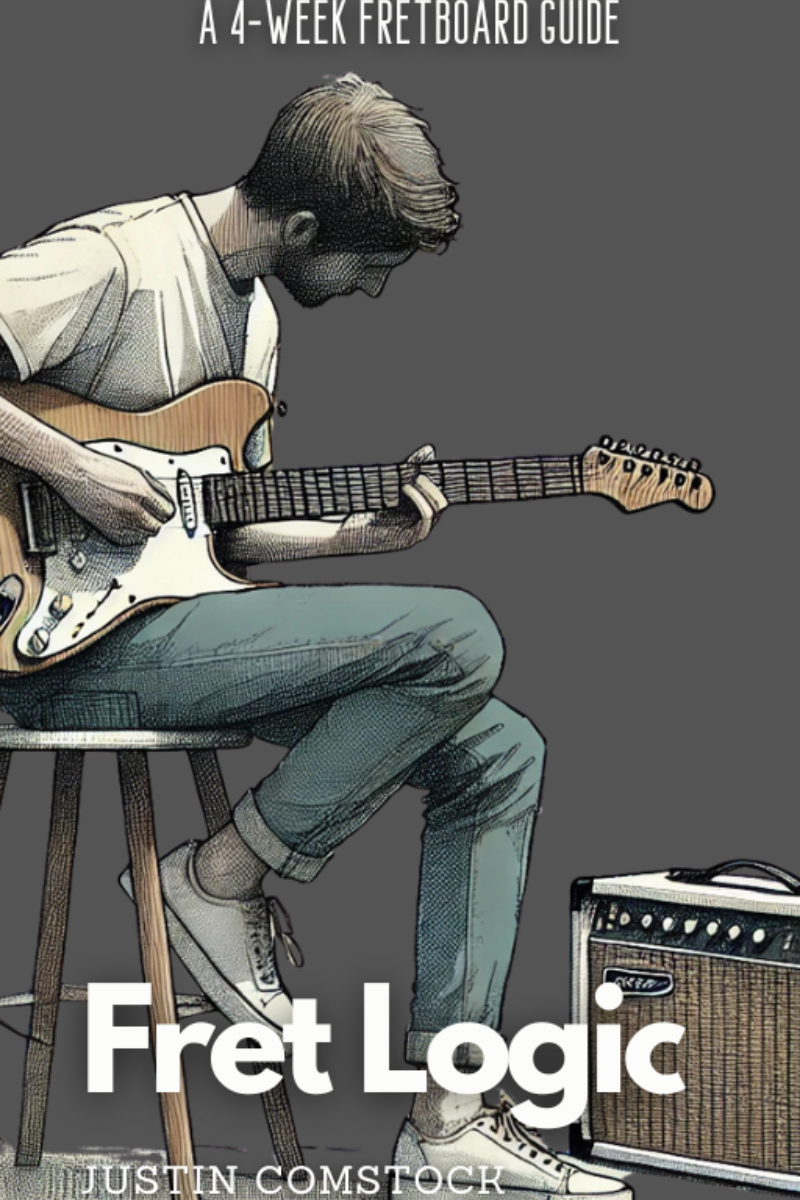
Join Guitar Freaks Hangout on Discord! 🎸
Get Fret Logic FREE!
Join the Guitar Freaks Hangout Discord and get exclusive access to my entire e-book, Fret Logic! Master the fretboard and elevate your solos with this comprehensive guide.
👉 Don’t miss out—join now and download your free copy!
🚀 Final Thoughts: Make the Guitar Make Sense
If the fretboard still feels like a mystery, major scales are your map.
But a map is only useful if you know how to read it.
With FretDeck™, you’ll finally see how everything connects—scales, chords, and melodies—so you can play the way you’ve always imagined.
Don’t wait to “feel ready.”
Start today.
One scale. One shape. One breakthrough.
👉 Back FretDeck now and unlock your fretboard
If you want to see exactly where every note lives before you dive into major scales and modes, check out this guide on learning the notes on the guitar fretboard.
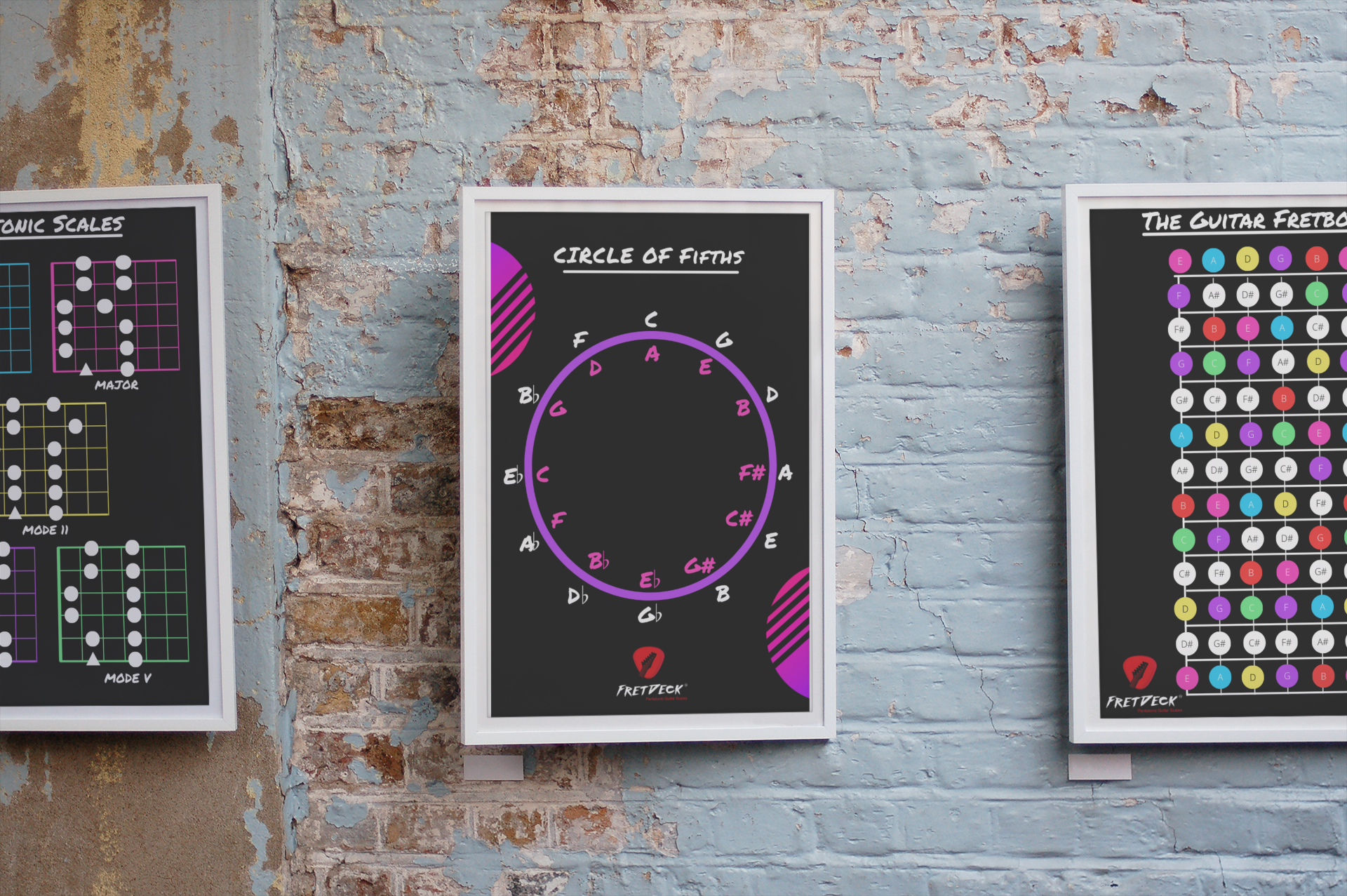
Download FREE Guitar Charts!
We have 27 FREE guitar charts to help you learn the guitar fretboard. Learn How to play chords and scales with these free resources.
Free Guitar Resources
